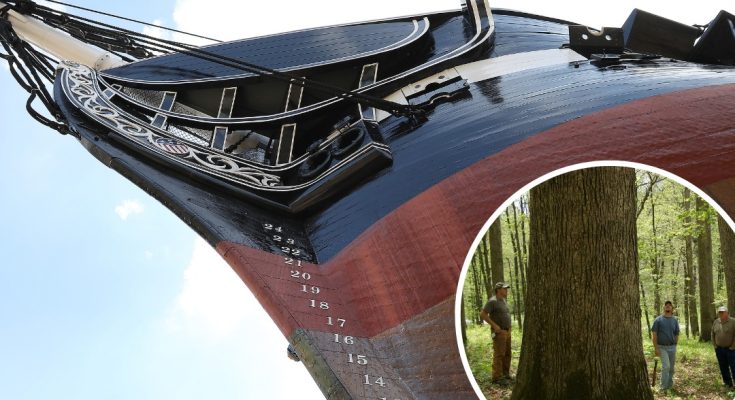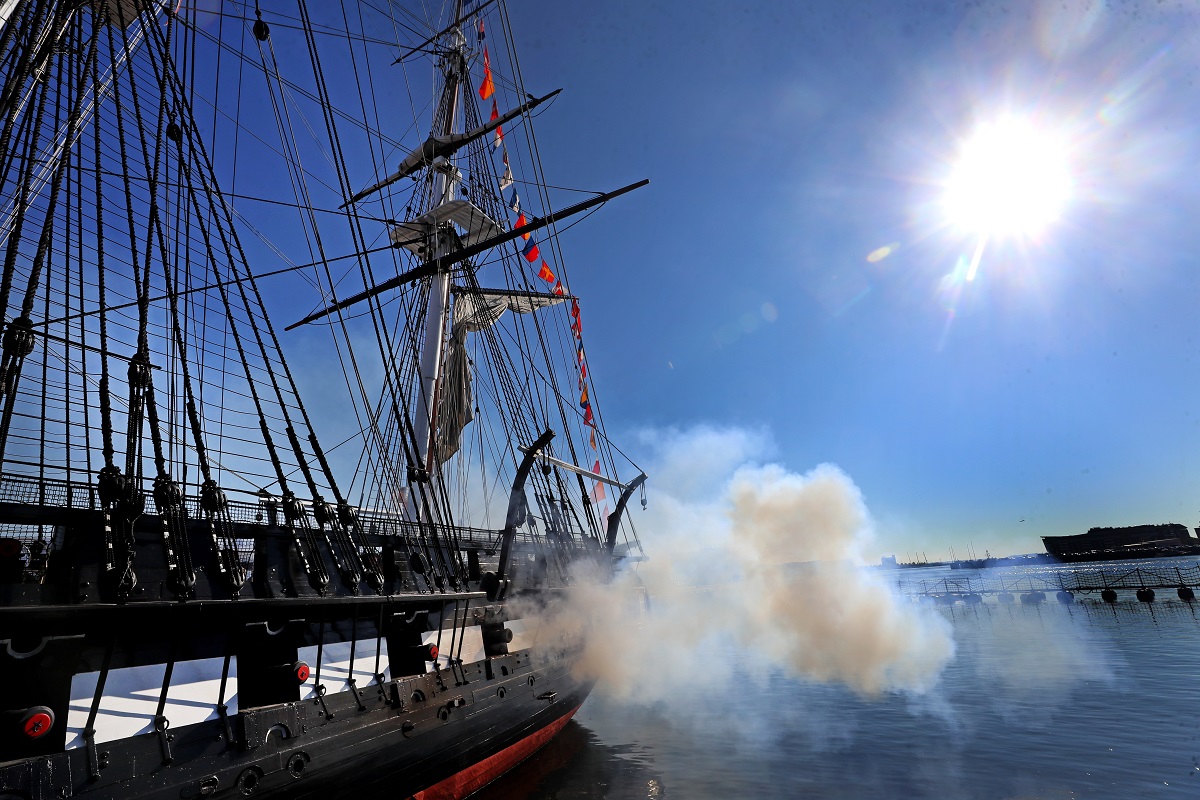
In another display of the US military’s immense budget, the US Navy manages an entire forest just to use the wood for shipbuilding. The forest is full of growing white oak trees, a sturdy building material used in the construction of wooden-hulled ships of the past. Why is such a forest still necessary when wood-hulled warships were phased out toward the end of the 1800s?
The reason is for a single ship: the USS Constitution.
Old Ironsides
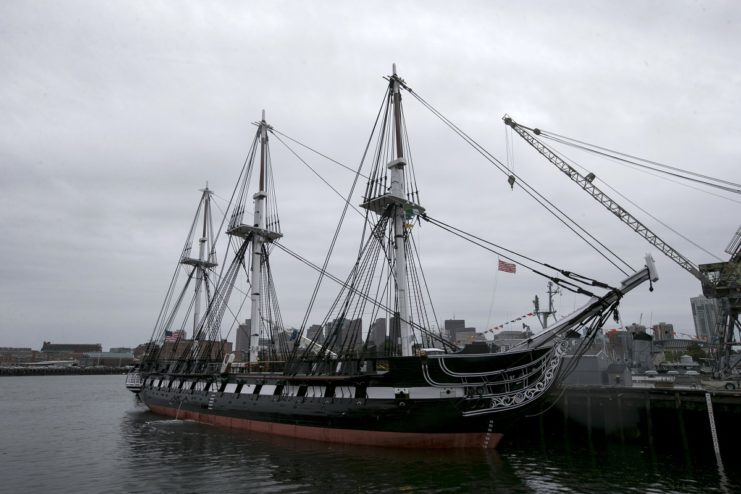
This vessel was built while George Washington was president, and participated in key battles against the British during the War of 1812. Although today she is a symbol of a bygone era, when she was launched in 1797 she was one of the most powerful and modern ships in the world.
During the War of 1812, the wooden ship clashed with Britain’s HMS Guerriere, whose cannonballs simply bounced off Constitution’s 22-inch thick hull. The sight of this caused the elated US sailors to declare that the ship’s sides were made of iron. After that, the ship became known as “Old Ironsides,” a nickname she still carries today.
USS Constitution was built alongside six other frigates commissioned in 1794 but is the only one to remain today. However, she is far from a dusty museum exhibit, but an actual serving Navy vessel.
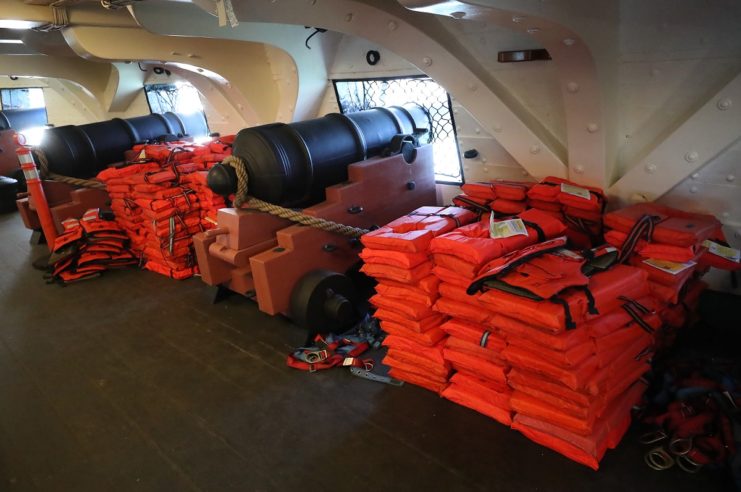
Well, we say serving, but you won’t see Constitution heading out to the most recent warzone with cannonballs at the ready. She is used for ceremonial purposes and now acts as a tool for education and remembrance.
Her continued service has allowed the USS Constitution to become the world’s oldest ship of all types still afloat, and more recently the only serving US ship to have sunk another vessel.
Her legendary service life has saved her from dismantling.
She spent the Civil War as a training ship and was retired from active service in 1881. In 1907 she was made a museum ship and underwent a major restoration in 1997. This restoration was an enormously difficult job, as the tools, materials, and know-how to pull off such a feat was in short supply. Fortunately, the US Navy had great long-term planning and planted white oaks for future ship-related activities.
Constitution Grove
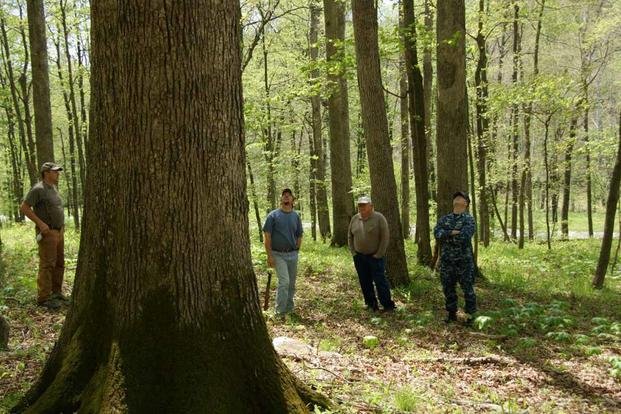
At the time the ship was constructed white oaks prime for such use were available in abundance, but today this is not the case. This material is exceptionally strong and durable and was key to the United States’ development in its early days.
The resources from these towering old trees were used in the construction of railroads, houses, transportation, and, as mentioned, shipbuilding.
When the Navy planted the oak trees in what is known as “Constitution Grove,” they probably did not expect that it would be used at a time when people travel in flying metal tubes and have the power of knowledge and global communication in the palm of their hands. But as the Constitution is subject to aging, the forest is still necessary.
Constitution Grove is located near Naval Support Activity Crane, near Bloomington, Indiana, and is used when new wood is needed for the 220-year-old ship. Naturally, the quantities needed to keep a single ship afloat are relatively small, and oak trees can live for centuries, so the forest hosts a complex and biodiverse ecosystem. It is protected both for the oaks and this ecosystem and civilian foresters working on behalf of the Navy ensure that this ecosystem is not negatively impacted when trees are removed.
The Navy will continue to maintain the forest as long as the USS Constitution remains.

